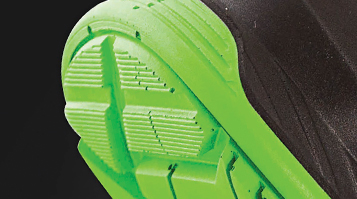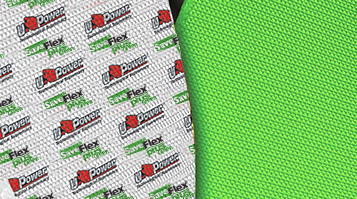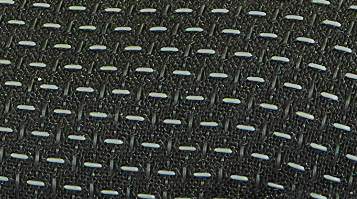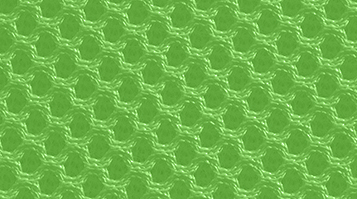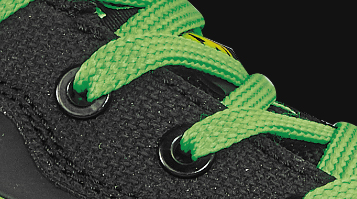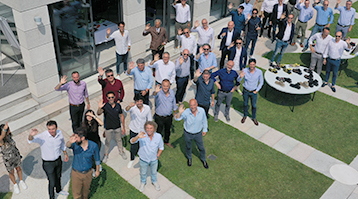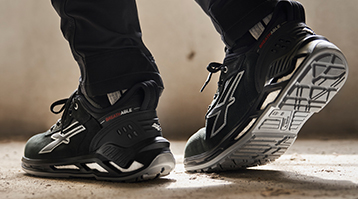An effective work shoe, designed according to the best technical solutions, provides an all-round protection of the health of the worker, under any aspect.
U-Power complements the study of new technologies with the study of human movement and analyses the behaviour of body structures to design a product capable of improving the life of the worker, making the working environment safer.
RESULTS AND OBJECTIVES
In 2020 U-Power worked towards the development of U-Green, a project that stemmed from the goal of reducing the environmental impact of its products and pursuing a circular economy strategy. The project involved the research and development of products and processes capable of lessening environmental impacts, working on the reduction of waste, the recovery and reuse of materials, the reduction of energy consumption and the offsetting of CO2 through specific projects.
As part of the U-Green project, the Group has designed a range of safety shoes with a reduced environmental impact. Each component of the footwear required a solution that could combine environmental sustainability and high safety standards:
RED INDUSTRY GREEN: FIRST SAFETY SHOES CARBON NEUTRAL IN THE WORLD
The safety shoes of the Red Industry Green line have reached net carbon dioxide emissions of zero thanks to the use of materials with reduced environmental impact and compensation for residual emissions with the purchase of carbon credits certified according to schemes and methodologies recognised by the United Nations.
It means that the entire production process is monitored and optimised in order to measure its climate impact, reducing CO2 emissions as much as possible and offsetting those that cannot be avoided with specific projects that contribute to the fight against climate change.
A responsible approach and transversal through sustainable development objectives, a circular economy for the environment that minimises waste, reuses and fetches materials, reduces the emissions and compensates for them.
Red Industry Green is the result of constant research for alternative and ecofriendly solutions capable to offer a quality product that ensures the maximum protection and comfort, respecting the environment.
CO2 COMPENSATION PROJECTS FOR CARBON OFFSET WORK SHOES
U-Power compensates the emissions from the production of its own Red Industry Green line through the purchase of certified credits, in line with the Climate Neutral Now initiative. The project chosen in this first phase is a hydropower plant in Laos for the production of renewable energy: Xe Namnoy 2 Hydropower.
Il progetto scelto in questa prima fase è una centrale idroelettrica in Laos per la produzione di energia rinnovabile: Xe Namnoy 2 Hydropower.
The plant exploits the hydropower to generate clean electricity for the slectric net in Laos, reduce the harmful greenhouse gas emissions and, contemporary, the project supports the local economy creating the opportunity to work and study for the local population.
- 1,048 local people benefit from the improvements brought by the development of water supply;
- 83,000 Mwh of clean electricity sent to the grid on average per year
- Ten (10) jobs for the local population during the operational period;
- 46,000 tCO2e saved in one year, replacing part of the energy generated by thermal power plants.
QUALITY AND SAFETY
The safety of U-Power products is the essential requirement to ensure consumer confidence in its products.
The Group’s objective is to always offer articles that offer maximum comfort and functionality, in order to improve working conditions, also reducing the "invisible" risks of physical alteration and health in the short term, medium and long term workers. An ambitious goal that requires continuous testing as well as research commitment and attention to technological innovations.
U-Power Group shoes are all certified according to ISO 20345:2011, ISO 20346:2011 and 20347:2012 for both the EU and non-European markets.
The Group pays the utmost attention to the satisfaction of its customers. For this reason, it traces and analyzes all possible product non-conformities, paying particular attention to all cases of returns made, in order to carry out statistical analyses and define qualitative improvement actions in products.
